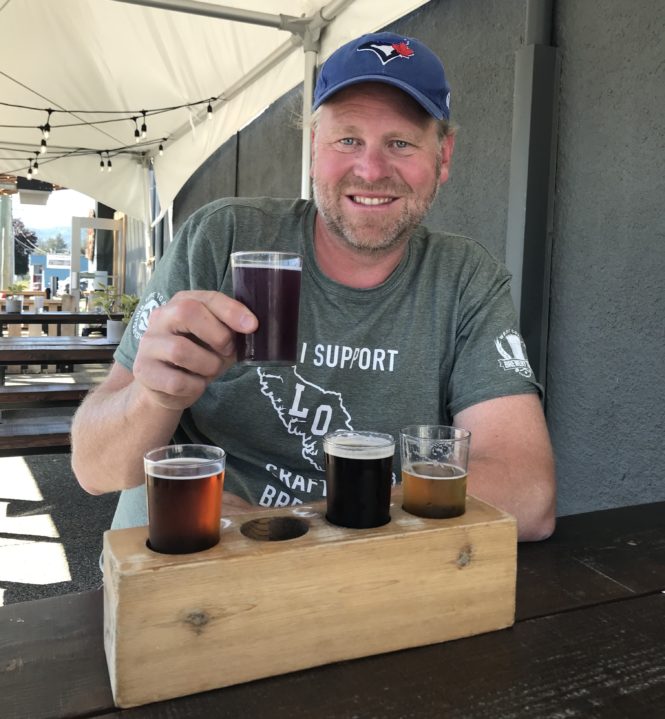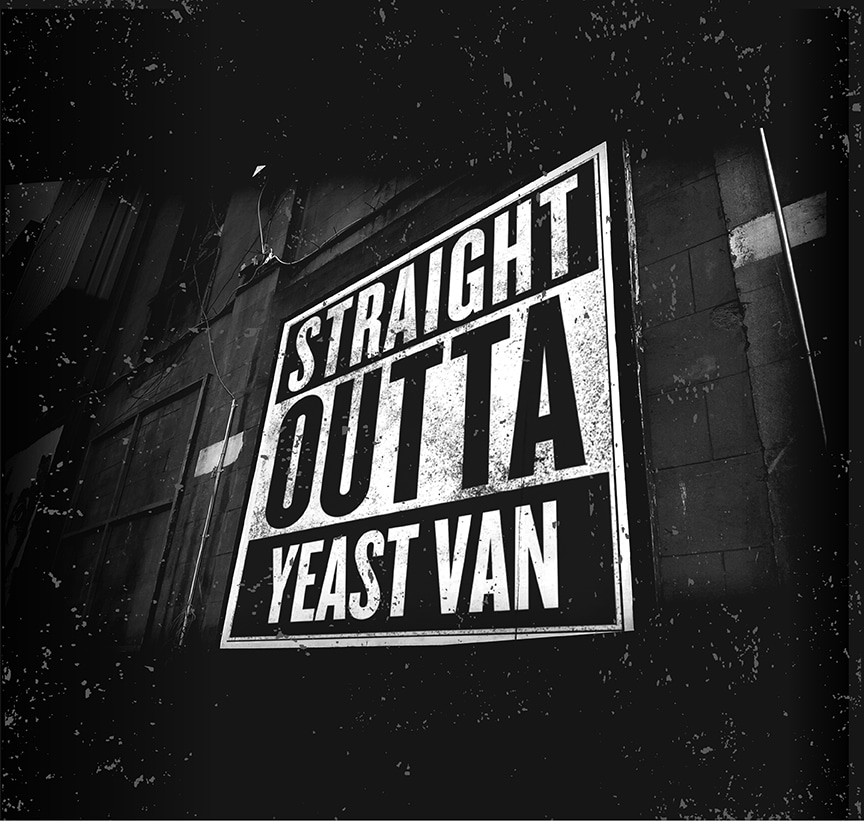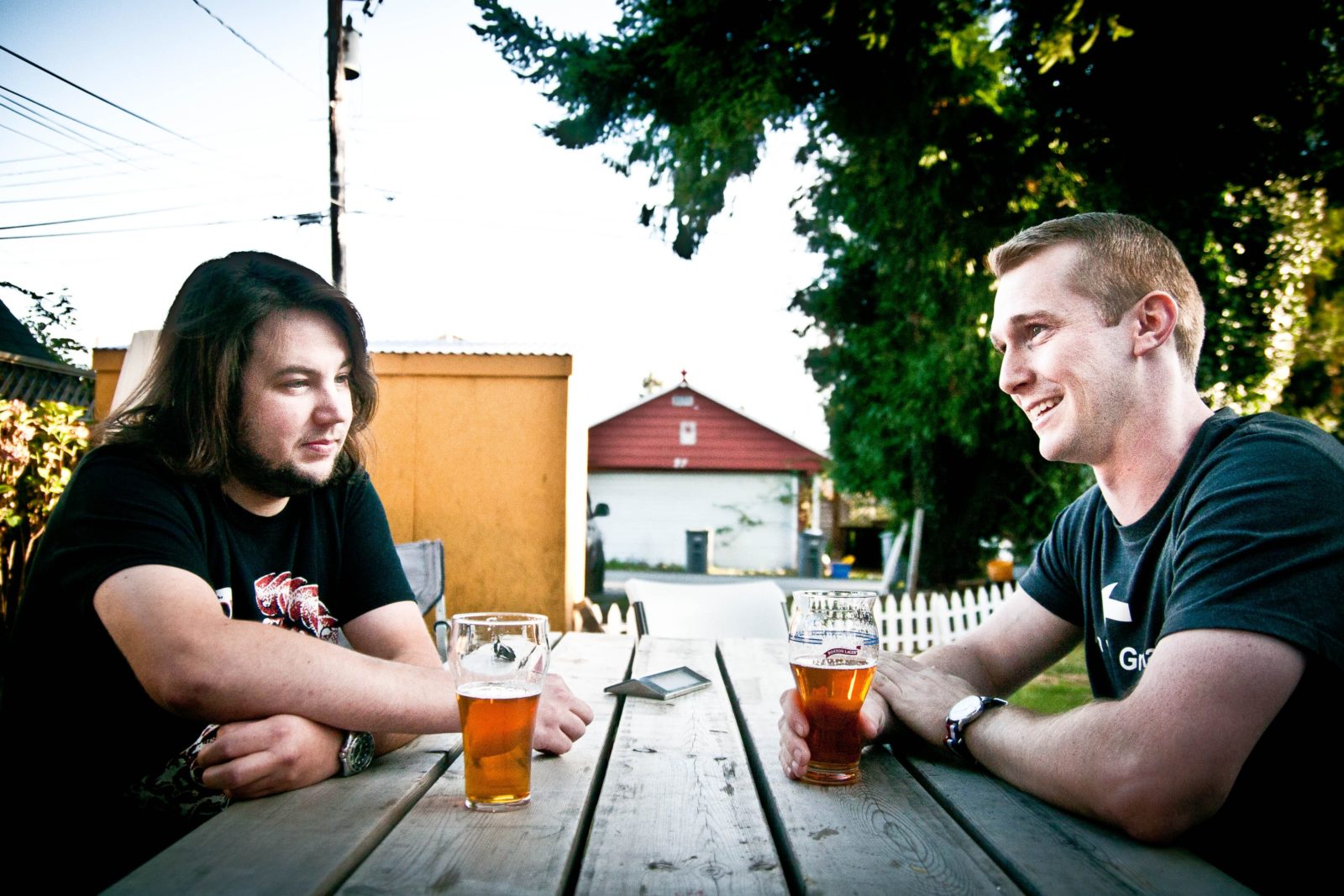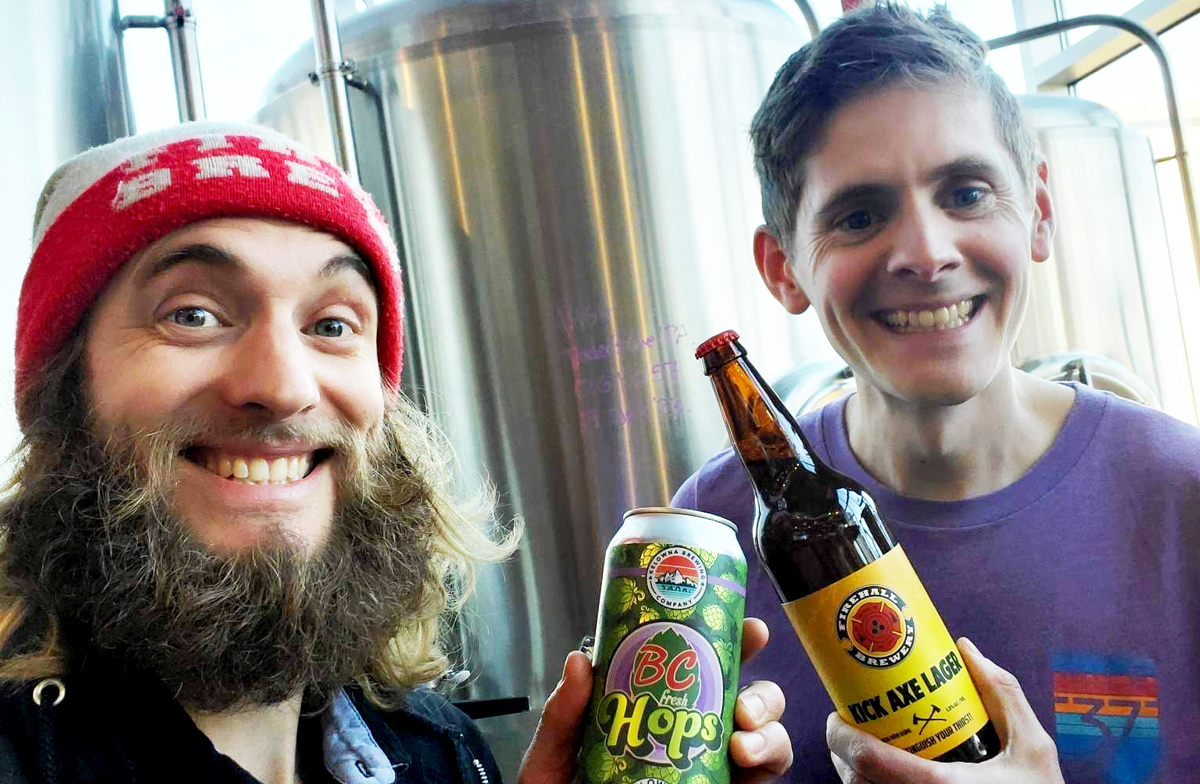
interview. Supplied photo
The Okanagan has long been a haven for craft beer, with some of the province’s most well-established craft breweries calling the region home. But precisely which part of the Okanagan produces the best craft beer is a topic that’s hotly debated (at least in the Okanagan). So to settle this once and for all, we asked two brewers from the Okanagan—one from the North and one from the South—to represent their region. Sid Ruhland helped pioneer the craft beer movement when he opened Firehall Brewery in Oliver back in 2012. Josh Wyatt of Kelowna Brewing Co. is a bit of a newer arrival. Here’s what they had to say.
Joe Wiebe: Josh, I detect a bit of an accent…
Josh Wyatt: I’m from England. I was actually an English teacher before I became a brewer. I was teaching in South Korea where I met my girlfriend, who is Canadian. We travelled and taught in places around the world for eight years. I kinda just picked up home brewing along the way. We lived in Colombia and Istanbul, and these are not places where there’s a huge amount on offer for craft beer so, just out of necessity, I ended up figuring out how to brew my own beer and cobbled together whatever sort of equipment I could find. And then the thought was: move to Canada and maybe I can put my teaching aside for a little while and take up brewing. I ended up getting a job at Boundary Brewing a few days after we arrived in Canada.
Joe: Were you involved in starting up the Kelowna Brewing Co.?
Josh: They had the system set up here and the pub was actually open a year before we could start making beer. There was some sort of licencing process that they had to go through. So the brewer who had helped them set up the system ended up getting a job somewhere else because it was taking so long. I was just down the road—Boundary Brewing was less than five minutes drive from here—and the manager knew who I was so he just came in and said, “Hey, we got our licence. Do you want to just come in and brew a couple batches and we’ll see how it goes?” So I ended up doing the first brew here with Mitchell from Wild Ambition, but he was busy with his brewery after that point. Boundary was slowing down so it actually worked out really well. I was working at both breweries for a while and then just completely switched over here because the beers were coming out really good and they were happy with me.
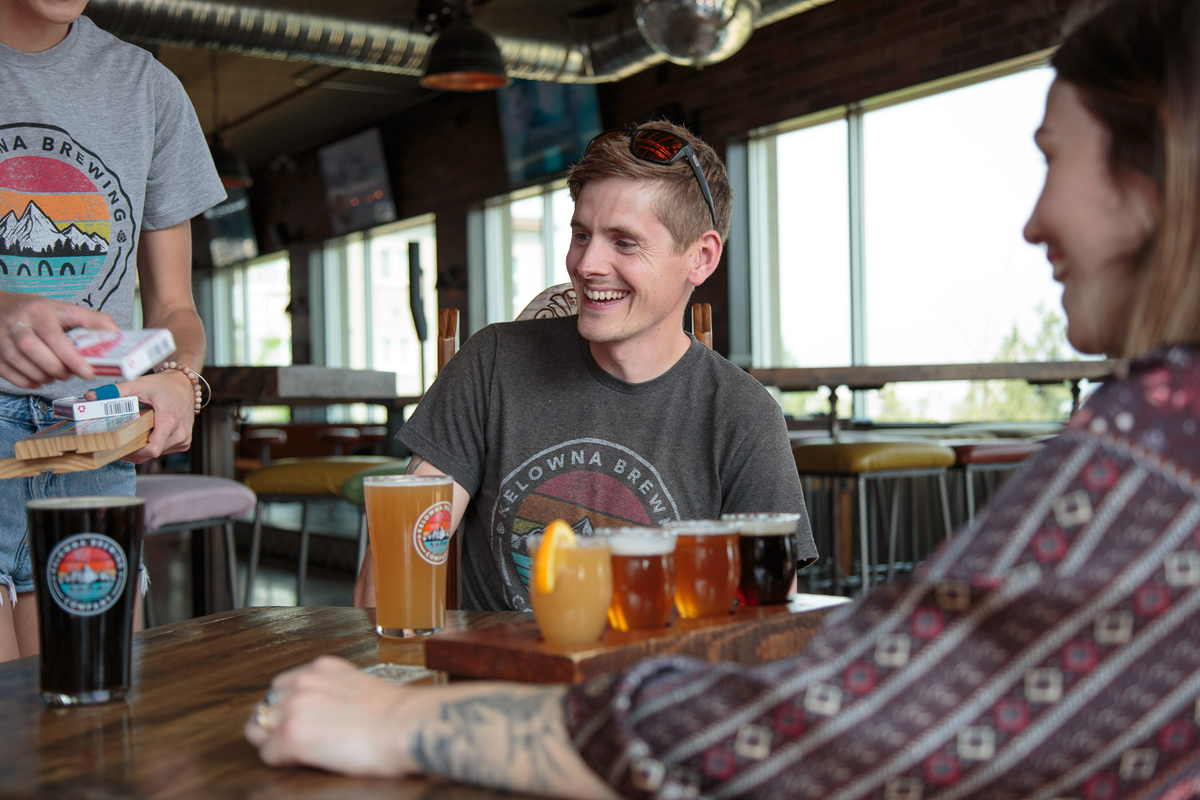
Joe: Sid, it’s been 10 years, even more, since you opened!
Sid Ruhland: I guess time flies but at the same time it does feel like a lifetime ago in some regards. One thing that we always keep saying is “The next time we build a brewery we’ll do it this way…” because, you know, you set things up and then you realize, oh, that wasn’t great. Now it’s been enough time that all of our “new” equipment is 10 years old and breaking so we get the opportunity to refresh things. Time for new hoses, new pumps, new compressors, all those fun things.
Joe: I’m going to ask each of you to defend your territory. I’ll start with Sid. Why is the South Okanagan better than the North?
Sid: One thing about the South Okanagan is it is less populated so you’ve got a little bit more breathing room. It’s more laid back. It’s got some hippie vibes threaded throughout. You can get away from the hustle and bustle of city life. Up there you have to get through Kelowna traffic to get from one brewery to another while in Oliver you can just hop on a bike and ride around. I’ll go with the chill, laid-back environment.
Josh: You just gotta look at Kelowna and the recent explosion in how many craft breweries we have. When I started brewing here there were eight breweries and now there are more than 20! And I think with the explosion of breweries we’ve also seen a huge diversity in what kind of experiences you can get here in Kelowna. If you want those chill, lakeside, laidback vibes you can get those, if you want an underground heavy metal bar we have that, if you want a British pub we have that. You can go where your desires take you and find good beer along the way.
Sid: I think I like your answer better! Like, wait a second, you can jump on your bike in Kelowna too…
Josh: We have like 10 breweries within walking distance so you don’t even need to get on a bike.
Joe: But for the longest time Kelowna didn’t have much going on…
Josh: Obviously I’ve only seen a snapshot of the progress that’s happened here. I wonder if the cost of things is slightly higher here, whether that’s a barrier to entry for new breweries? You just have to look at the story of how Sid got started—he basically built a big homebrew system and went from there.
Sid: A bit more on a shoestring…
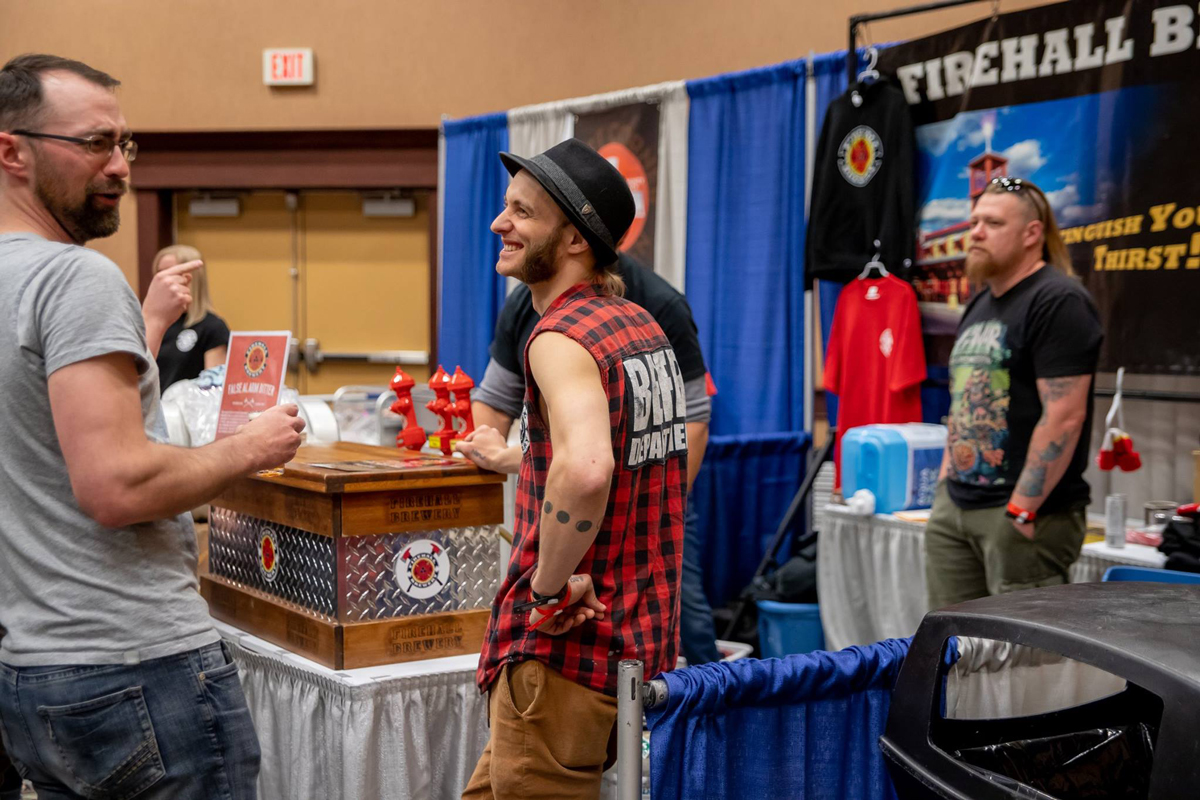
Josh: Exactly. I don’t know how possible that would have been in Kelowna. Also, Kelowna has seen a lot of people moving here from other places and bringing in their ideas and influences. That helps develop a progressive perception rather than beer just being light lagers. Exposing people to more modern styles of craft beer and educating people on what those are and why they should try them. I think that has taken a little bit of time to develop, but we are very much there now.
Joe: Sid, you spent some time in Kelowna when you went to school, right?
Sid: The college years about 10 years ago. My friends and I definitely made fun of Kelowna a lot. It helped that we weren’t from Kelowna. You know, we’re there because we have to go to the “Big City” to go to school. But the culture was just more about Jägerbombs and big boats and nightclubs. My friends and I felt like we were nerds going to RauDZ to get Backhand of God Stout because it was the one place where it was on tap. But slowly it did catch up. Perhaps it was an effect of Kelowna being a second home for wealthier people from other places, but then that would drive up the prices, like Josh said, so the barrier to entry would keep the grassroots beer nerds from taking over. But we took over!
Joe: Where does Penticton fit in?
Sid: One thing Penticton had was a head start over Kelowna in terms of the sheer number of breweries, especially per capita. And it goes way back to the Fest of Ale, which is 26 or 27 years old now. I think Penticton embodies what I was getting at before where the South Okanagan has that Nelson vibe, not a copycat of Nelson, but just the progressive laidback feel to it, you know, sandwiched between two lakes, so you’re just living the tropical beach life and it’s such a good place to have a beer.
Josh: Penticton has done a fantastic job—they market themselves as a destination for both wine and craft beer. And, obviously, they also make fantastic beer as you can see from every awards competition where Penticton breweries walk home with two or three awards whether it’s Slackwater or Cannery. Even Abandoned Rail, the new guys, have even been picking up awards. I’d say it probably still is the place for craft beer in the Okanagan, but I think Kelowna is catching up at a fast rate. There is so much going on up here that it will be interesting to see where Kelowna and Penticton stand five or ten years from now.
Joe: What about wine? How do beer and wine mix?
Josh: I don’t think there necessarily has to be this perception of beer versus wine. What we’re seeing more and more around the world is more respect for beer and what you can do with beer. It’s not like beer is this cheap, working-class drink and wine is this expensive, upper-class beverage, right? It’s more like there’s another level to beer.
Sid: I know this is supposed to be North versus South, but I completely agree that beer and wine should be sitting on the same table. They’re complementary. If I was going to stand up for beer versus wine, I would say beer has the opportunity to have more dimensions than wine, because wine, while complex and there are effects from the terroir and the process, it’s grapes and you put it in an oak barrel. That’s just like barley in beer, but there’s a much wider range with barley because you can roast it and caramelize it and acidify it, and then there’s hops and all the roles they can play, and then you can put it in a barrel anyway. It can be sour, it can be sweet, it can be all over the place. So I think beer can be a lot more dynamic.
Josh: You see wine and beer collaborations more and more. Being right here where they’re making the wine there’s access to grape pomace and all the ingredients they’re using for wine and that can easily be imported into a beer collaboration as well.
Sid: We did the Table Beer series that included a few different styles aged in wine barrels. They were great, but we just ran out of space for putting barrels anywhere so if we were to do more barrel projects now we’d have to do them at the winery or some other location where the barrels can be stored properly. That’s actually what I was doing this morning—emptying stout out of whiskey barrels at the local distiller, Dubh Glas.
The conversation continued for a while until we got the warning that our Zoom session was about to end. Sid and Josh promised to visit each other’s breweries soon.
Sid: Now that I’m a dad and fully into family mode I haven’t done nearly enough of getting up to Kelowna.
Josh: You should come on up. We make a fantastic Jägerbomb.
Sid: Perfect!

